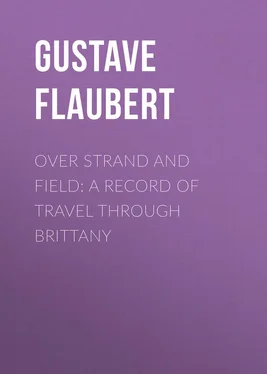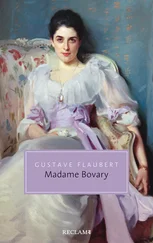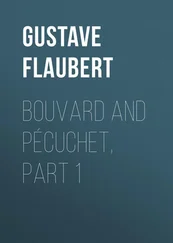Gustave Flaubert - Over Strand and Field - A Record of Travel through Brittany
Здесь есть возможность читать онлайн «Gustave Flaubert - Over Strand and Field - A Record of Travel through Brittany» — ознакомительный отрывок электронной книги совершенно бесплатно, а после прочтения отрывка купить полную версию. В некоторых случаях можно слушать аудио, скачать через торрент в формате fb2 и присутствует краткое содержание. Жанр: foreign_antique, foreign_prose, на английском языке. Описание произведения, (предисловие) а так же отзывы посетителей доступны на портале библиотеки ЛибКат.
- Название:Over Strand and Field: A Record of Travel through Brittany
- Автор:
- Жанр:
- Год:неизвестен
- ISBN:нет данных
- Рейтинг книги:3 / 5. Голосов: 1
-
Избранное:Добавить в избранное
- Отзывы:
-
Ваша оценка:
- 60
- 1
- 2
- 3
- 4
- 5
Over Strand and Field: A Record of Travel through Brittany: краткое содержание, описание и аннотация
Предлагаем к чтению аннотацию, описание, краткое содержание или предисловие (зависит от того, что написал сам автор книги «Over Strand and Field: A Record of Travel through Brittany»). Если вы не нашли необходимую информацию о книге — напишите в комментариях, мы постараемся отыскать её.
Over Strand and Field: A Record of Travel through Brittany — читать онлайн ознакомительный отрывок
Ниже представлен текст книги, разбитый по страницам. Система сохранения места последней прочитанной страницы, позволяет с удобством читать онлайн бесплатно книгу «Over Strand and Field: A Record of Travel through Brittany», без необходимости каждый раз заново искать на чём Вы остановились. Поставьте закладку, и сможете в любой момент перейти на страницу, на которой закончили чтение.
Интервал:
Закладка:
On the other side of the Sèvre, a forest covers the hill with its fresh, green maze of trees; it is La Garenne , a park that is beautiful in itself, in spite of the artificial embellishments that have been introduced. M. Semot, (the father of the present owner), was a painter of the Empire and a laureate, and he tried to reproduce to the best of his ability that cold Italian, republican, Roman style, which was so popular in the time of Canova and of Madame de Staël. In those days people were inclined to be pompous and noble. They used to place chiselled urns on graves and paint everybody in a flowing cloak, and with long hair; then Corinne sang to the accompaniment of her lyre beside Oswald, who wore Russian boots; and it was thought proper to have everybody's head adorned with a profusion of dishevelled locks and to have a multitude of ruins in every landscape.
This style of embellishment abounds throughout La Garenne. There is a temple erected to Vesta, and directly opposite it another erected to Friendship…
Inscriptions, artificial rocks, factitious ruins, are scattered lavishly, with artlessness and conviction… But the poetical riches centre in the grotto of Héloïse, a sort of natural dolmen on the bank of the Sèvre.
Why have people made Héloïse, who was such a great and noble figure, appear commonplace and silly, the prototype of all crossed loves and the narrow ideal of sentimental schoolgirls? The unfortunate mistress of the great Abélard deserved a better fate, for she loved him with devoted admiration, although he was hard and taciturn at times and spared her neither bitterness nor blows. She dreaded offending him more than she dreaded offending God, and strove harder to please him. She did not wish him to marry her, because she thought that "it was wrong and deplorable that the one whom nature had created for all … should be appropriated by one woman." She found, she said, "more happiness in the appellation of mistress or concubine, than in that of wife or empress," and by humiliating herself in him, she hoped to gain a stronger hold over his heart.
The park is really delightful. Alleys wind through the woods and clusters of trees bend over the meandering stream. You can hear the bubbling water and feel the coolness of the foliage. If we were irritated by the bad taste displayed here, it was because we had just left Clisson, which has a real, simple, and solid beauty, and after all, this bad taste is not that of our contemporaries. But what is, in fact, bad taste? Invariably it is the taste of the period which has preceded ours. Bad taste at the time of Ronsard was represented by Marot; at the time of Boileau, by Ronsard; at the time of Voltaire, by Corneille, and by Voltaire in the day of Chateaubriand, whom many people nowadays begin to think a trifle weak. O men of taste in future centuries, let me recommend you the men of taste of to-day! You will laugh at their cramps, their superb disdain, their preference for veal and milk, and the faces they make when underdone meat and too ardent poetry is served to them. Everything that is beautiful will then appear ugly; everything that is graceful, stupid; everything that is rich, poor; and oh! how our delightful boudoirs, our charming salons, our exquisite costumes, our palpitating plays, our interesting novels, our serious books will all be consigned to the garret or be used for old paper and manure! O posterity, above all things do not forget our gothic salons, our Renaissance furniture, M. Pasquier's discourses, the shape of our hats, and the aesthetics of La Revue des Deux Mondes!
While we were pondering upon these lofty philosophical considerations, our wagon had hauled us over to Tiffanges. Seated side by side in a sort of tin tub, our weight crushed the tiny horse, which swayed to and fro between the shafts. It was like the twitching of an eel in the body of a musk-rat. Going down hill pushed him forward, going up hill pulled him backward, while uneven places in the road threw him from side to side, and the wind and the whip lashed him alternately. The poor brute! I cannot think of him now without a certain feeling of remorse.
The road down hill is curved and its edges are covered with clumps of sea-rushes or large patches of a certain reddish moss. To the right, on an eminence that starts from the bottom of the dale and swells in the middle like the carapace of a tortoise, one perceives high, unequal walls, the crumbling tops of which appear one above another.
One follows a hedge, climbs a path, and enters an open portal which has sunken into the ground to the depth of one third of its ogive. The men who used to pass through it on horseback would be obliged to bend over their saddles in order to enter it to-day. When the earth is tired of supporting a monument, it swells up underneath it, creeps up to it like a wave, and while the sky causes the top to crumble away, the ground obliterates the foundations. The courtyard was deserted and the calm water that filled the moats remained motionless and flat under the pond-lilies.
The sky was white and cloudless, but without sunshine. Its bleak curve extended far away, covering the country with a cold and cheerless monotony. Not a sound could be heard, the birds did not sing, even the horizon was mute, and from the empty furrows came neither the scream of the crows as they soar heavenward, nor the soft creaking of plough-wheels. We climbed down through brambles and underbrush into a deep and dark trench, hidden at the foot of a large tower, which stands in the water surrounded by reeds. A lone window opens on one side: a dark square relieved by the grey line of its stone cross-bar. A capricious cluster of wild honeysuckle covers the sill, and its maze of perfumed blossoms creeps along the walls. When one looks up, the openings of the big machicolations reveal only a part of the sky, or some little, unknown flower which has nestled in the battlement, its seed having been wafted there on a stormy day and left to sprout in the cracks of the stones.
Presently, a long, balmy breeze swept over us like a sigh, and the trees in the moats, the moss on the stones, the reeds in the water, the plants among the ruins, and the ivy, which covered the tower from top to bottom with a layer of shining leaves, all trembled and shook their foliage; the corn in the fields rippled in endless waves that again and again bent the swaying tops of the ears; the pond wrinkled and welled up against the foot of the tower; the leaves of the ivy all quivered at once, and an apple-tree in bloom covered the ground with pink blossoms.
Nothing, nothing! The open sky, the growing grass, the passing wind. No ragged child tending a browsing cow; not even, as elsewhere, some solitary goat sticking its shaggy head through an aperture in the walls to turn at our approach and flee in terror through the bushes; not a song-bird, not a nest, not a sound! This castle is like a ghost: mute and cold, it stands abandoned in this deserted place, and looks accursed and replete with terrifying recollections. Still, this melancholy dwelling, which the owls now seem to avoid, was once inhabited. In the dungeon, between four walls as livid as the bottom of an old drinking-trough, we were able to discover the traces of five floors. A chimney, with its two round pillars and black top, has remained suspended in the air at a height of thirty feet. Earth has accumulated on it, and plants are growing there as if it were a jardinière.
Beyond the second enclosure, in a ploughed field, one can recognise the ruins of a chapel by the broken shafts of an ogive portal. Grass has grown around it, and trees have replaced the columns. Four hundred years ago, this chapel was filled with ornaments of gold cloth and silk, censers, chandeliers, chalices, crosses, precious stones, gold vessels and vases, a choir of thirty singers, chaplains, musicians, and children sang hymns to the accompaniment of an organ which they took along with them when they travelled. They were clad in scarlet garments lined with pearl grey and vair. There was one whom they called archdeacon, and another whom they called bishop, and the Pope was asked to allow them to wear mitres like canons, for this chapel was the chapel, and this castle one of the castles of Gilles de Laval, lord of Rouci, of Montmorency, of Retz and of Craon, lieutenant-general of the Duke of Brittany and field-marshal of France, who was burned at Nantes on the 25th of October, 1440, in the Prée de la Madéleine for being a counterfeiter, a murderer, a magician, an atheist and a Sodomite.
Читать дальшеИнтервал:
Закладка:
Похожие книги на «Over Strand and Field: A Record of Travel through Brittany»
Представляем Вашему вниманию похожие книги на «Over Strand and Field: A Record of Travel through Brittany» списком для выбора. Мы отобрали схожую по названию и смыслу литературу в надежде предоставить читателям больше вариантов отыскать новые, интересные, ещё непрочитанные произведения.
Обсуждение, отзывы о книге «Over Strand and Field: A Record of Travel through Brittany» и просто собственные мнения читателей. Оставьте ваши комментарии, напишите, что Вы думаете о произведении, его смысле или главных героях. Укажите что конкретно понравилось, а что нет, и почему Вы так считаете.












